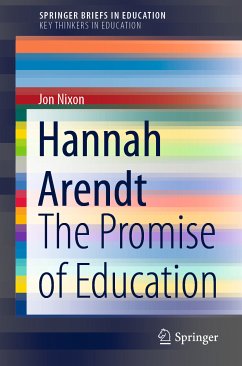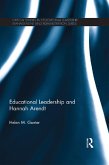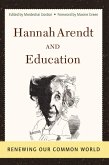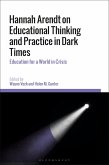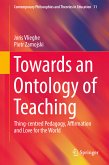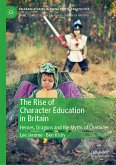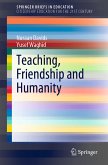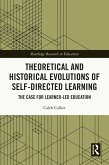This book gathers some of Hannah Arendt's core themes and focuses them on the question, 'What is education for?' For Arendt, as for Aristotle, education is the means whereby we achieve personal autonomy through the exercise of independent judgement, attain adulthood through the recognition of others as equal but different, gain a sense of citizenship through the assumption of our civic rights and responsibilities, and realize our full potential as sentient beings with the capacity for human 'flourishing' and 'happiness' (eudaimonia). In order to appreciate the pivotal role that education plays in Arendt's analysis of the human condition, we have to understand the emphasis she placed on 'thoughtfulness', as the measure of our humanity and on 'thoughtlessness', as the measure of our inhumanity. Education sustains and develops the human capacity: to think together (phronesis), to think for oneself (what Arendt called 'the two-in-one' of thinking), and to think from the point of view of others (what she termed 'representative thinking'). From the developing constellation of ideas embedded in her vast and varied body of work, the author infers a notion of education as a necessary preparation for personal fulfillment, social engagement, and civic participation.
Dieser Download kann aus rechtlichen Gründen nur mit Rechnungsadresse in A, B, BG, CY, CZ, D, DK, EW, E, FIN, F, GR, HR, H, IRL, I, LT, L, LR, M, NL, PL, P, R, S, SLO, SK ausgeliefert werden.

